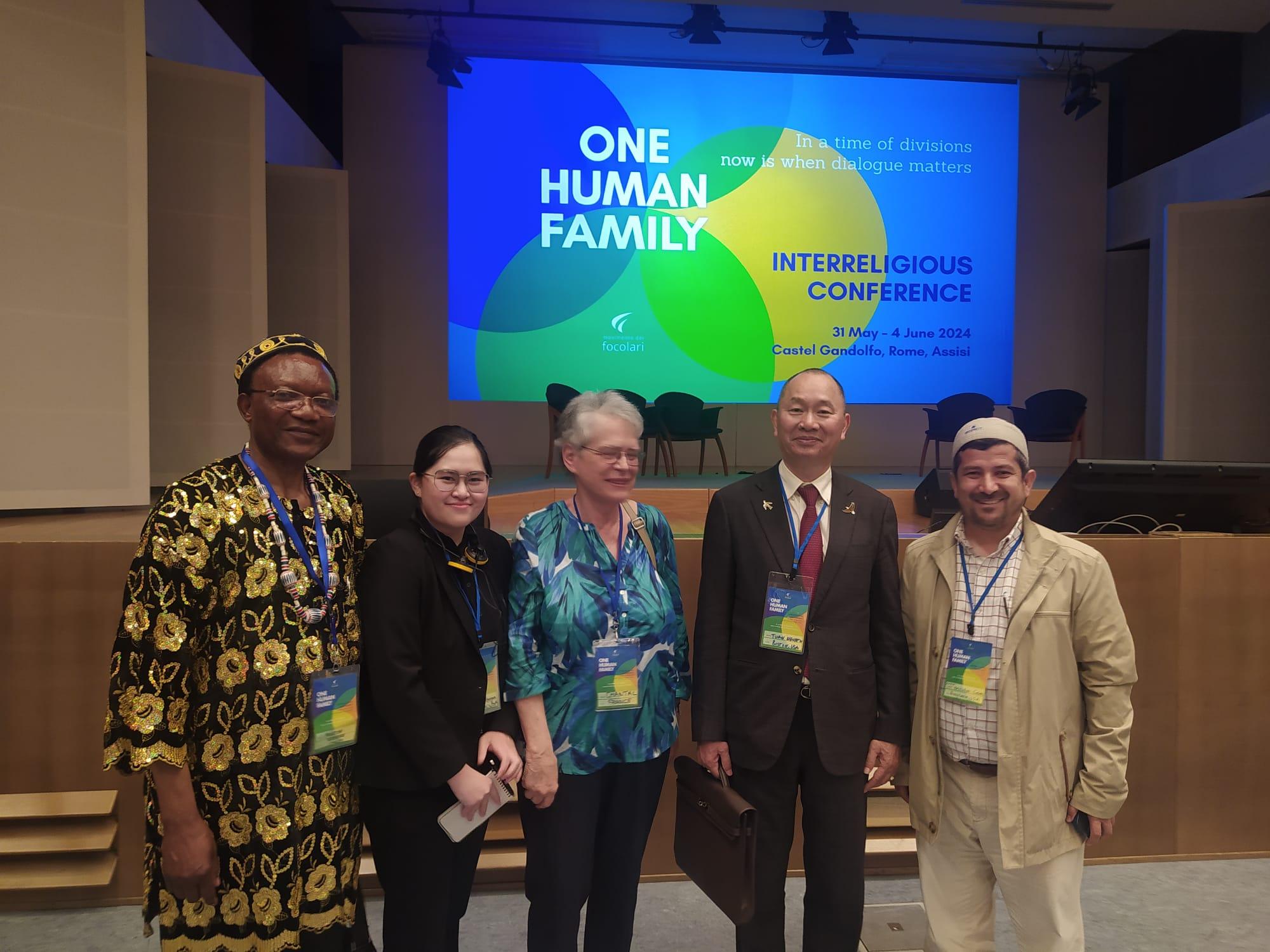INTERRELIGIOUS CONFERENCE 2024, Rome, Italy May 31 – June 4
Center for Interreligious Dialogue – Focolare Movement
Nguyen Anh Tuan, Nguyen Phan Nguyet Minh
In the rapidly evolving landscape of artificial intelligence (AI), the need for a comprehensive knowledge platform has never been more pressing. As AI systems continue to permeate various aspects of our lives, from healthcare and finance to transportation and entertainment, the importance of having a centralized repository of knowledge to inform decision-making processes is paramount. Due to this necessity, the Boston Global Forum has conceived the Knowledge Platform for AI. This Knowledge Platform can serve as an essential resource, providing a foundation upon which AI applications and systems can reference, think critically, and make informed decisions.
Rooted in ethics and standards, this platform can offer guidance and reference points for individuals navigating the complexities of artificial intelligence. Emphasizing humanity, compassion, and moral judgement, it embodies a commitment to fostering ethical practices and responsible use of AI technologies. By integrating intellectual rigor with ethical considerations, the platform empowers users to make informed decisions that align with ethical principles and societal values, promoting integrity, fairness, and accountability in AI applications across various domains.
At its core, the Knowledge Platform for AI seeks to aggregate and organize vast amounts of data, information, and expertise from diverse sources, both modern and historical. It encompasses the Social Contract for the AI Age, standard values of AI World Society (AIWS), historical data, norms, ethics, and background information from politics, science, and the economy. By consolidating this wealth of information into a single, accessible platform, AI systems can draw upon a wide range of insights to enhance their understanding and decision-making capabilities.
Integration of Spiritual Values from Various Religions into The Knowledge Platform for AI:
A dimension of the Knowledge Platform is incorporating the spiritual values of various and diverse religions into its development, enriching its ethical framework and enhancing its ability to guide decision-making processes. The principles and values of world religious traditions, such as Catholicism, Hinduism, Islam, Buddhism, and Judaism, can contribute to the platform:
Catholicism:
Human Dignity (Dignitatis Humanae): Catholic teachings on human dignity emphasizes the inherent dignity and worth of every human being, regardless of their background or circumstances. Everyone is made in God’s image, and can grow in virtue through their own actions with grace. This value underscores the importance of respecting individual autonomy, privacy, and rights in AI decision-making processes, but also the need to steer individuals toward a moral and ethical path.
Social Justice: Catholic social teaching, first emphasized in the Rerum Novarum, commits to the idea of a just society where the needs of the marginalized and vulnerable are prioritized, that all believers are equal. Integrating this value into the platform ensures that AI systems consider the broader societal implications of their actions and strive to promote equality and brotherhood among humanity.
Hinduism:
Ahimsa (Non-violence): Ahimsa is a central tenet of Hinduism, advocating for non-violence and compassion towards all living beings, as all have a spark of spiritual energy. A prominent practitioner of this principle was Mahatma Gandhi. This value encourages AI systems to prioritize peaceful and non-coercive methods in their interactions with humans, and for AI to not do harm.
Dharma (Virtue, Duty and Righteousness): Dharma emphasizes the importance of fulfilling one’s duty and upholding righteousness in all actions. By integrating this virtue, the platform encourages AI systems to act ethically and responsibly, considering the long-term consequences of their decisions.
Islam:
Justice (Adl): Adl conceptualizes justice within the individual, of having strong morals, integrity and moderation. Incorporating this value into the platform ensures that AI systems uphold principles of fairness and impartiality, treating all individuals with dignity and respect.
Mercy/Beneficient (Rahmah): Rahmah, a Name of God in Islam, is another key value, encouraging compassion and grace towards others. Divine mercy is extended to all of God’s creation. AI systems guided by this value can conceptualize understanding and mercy, leading to more empathetic and humane interactions.
Buddhism:
Selflessness/Compassion (Karuna): Karuna is a quality that needs to be honed on the path to enlightenment. By practicing this value, one can be more willing to let go of mortal hostilities and sorrows. This value encourages AI systems to prioritize the well-being of individuals and communities, promoting awareness and altruism in their decision-making processes.
Wisdom (Prajna): Wisdom, or more specifically insight or gained intuition, is key in Buddhism, as it is the ability to meditate and reflect on the nature of being or phenomena. Integrating this value into the platform ensures that AI systems make informed and judicious decisions that consider the broader implications and consequences.
Judaism:
Tikkun Olam (Repairing the World): This concept classically called for the maintenance of order and jurisdiction, but it has now been interpreted and expanded to the pursuit of social justice and righteousness, that Jews had a duty to both their individual/spiritual welfare and the welfare of society at large. Incorporating this value into the platform encourages AI systems to contribute positively to societal well-being and address pressing issues facing humanity.
Laws/Principles (Halakha): The Halakha refers to the body of religious laws, commandments, and traditions of Judaism. Through the lens of this Judaic tradition, which promotes ethical systems and guidance for the lives of believers, AI systems can be guided by ethical considerations that prioritize integrity, honesty, and accountability.
By embracing the spiritual values of these diverse religious traditions, The Knowledge Platform for AI becomes a more holistic and moral resource, capable of guiding AI decision-making processes in a manner that upholds ethical standards and respects human values.














